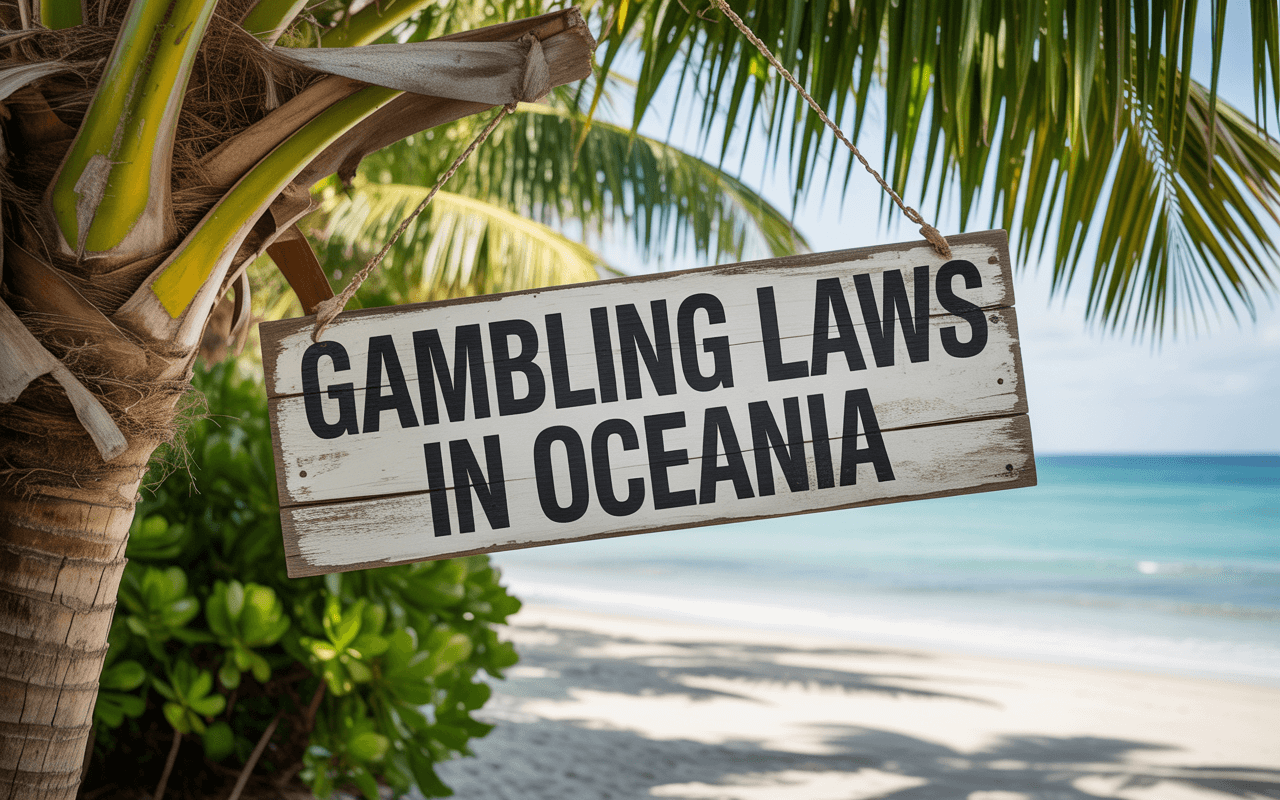Navigating Oceania’s Gambling Landscape

Last Updated on August 28, 2025
Gambling in Oceania varies considerably across jurisdictions, with layered complexities distinguishing legal, regulated operations from outright prohibited activities. Here, we explore the legal frameworks in Australia and New Zealand, as well as touching briefly on wider Oceania, offering clarity for businesses, bettors, and curious readers alike.
Australia: Strict Online Bans, Regulated Land-Based Play
Australia enforces a noticeably stringent stance on online interactive gambling under the Interactive Gambling Act 2001. It is illegal for any operator, whether based in Australia or offshore, to offer or advertise online casinos, online poker, or in-play betting to Australian residents. However, once a bet is placed before a sporting event or through approved licensed providers, like retail venues or phone services, it is legal.
Land-based gambling remains heavily regulated. Casinos, pokies (slot machines), lotteries, sports and racing betting require specific operator licenses in each jurisdiction. For instance, the Northern Territory offers Corporate Bookmaker Licenses allowing online sports bets, but only within licensing boundaries.
Regulatory reforms are underway to curb harm and money laundering. In Victoria, pilot programs for mandatory carded play on pokies, limiting daily load amounts and slowing machine spin rate, are scheduled through to late 2025. Queensland will also restrict cash gambling in casinos by late 2025.
New Zealand: Land-Based Licensing and Emerging Online Regulation
New Zealand’s Gambling Act 2003 prohibits all gambling unless expressly authorised. It classifies activities into several categories: Class 1 and 2 (small-scale, community-based, low-prize games, some without licence requirements) and Classes 3 and 4 (higher-value or gaming-machine activities, which require licensing).
Online gambling remains largely prohibited under “remote interactive gambling,” making it illegal to offer or participate in online casino or lottery services, with only limited exemptions for entities like the national Lotteries Commission and TAB (the state-run racing and betting operator).
That said, New Zealand is moving to legalise online casinos, so top casinos online are already looking to make their move. A new bill introduced recently would allow up to 15 licensed online casino platforms, subject to competitive bidding, licensing fees, and revenue taxes.
Additional reforms include plans to ban greyhound racing by August 1, 2026, on animal welfare grounds. The government also invests in harm-reduction through agencies like the Problem Gambling Foundation, which offers counselling and community outreach, funded through a gambling levy.
Other Parts of Oceania: Limited and Variable Regulation
Outside of Australia and New Zealand, gambling laws across the Pacific and Oceania vary widely. Many jurisdictions lack comprehensive regulatory infrastructure. For example, Vanuatu has legalised casinos, and Samoa passed casino legislation in 2013, though no casinos have opened yet. In some island nations, traditional and social forms of gambling are restricted or illegal, often with thresholds specified (e.g., 18 years for most, sometimes 20 for casinos).
Why All This Matters
Understanding these legal landscapes informs operator compliance, consumer behaviour, and policymaking. As regulations evolve, particularly with New Zealand’s iGaming bill and Australia’s harm-minimisation efforts, gambling entities such as online casinos have started to adapt, anticipating jurisdiction-specific licensing, consumer protections, and shifting market access.
Rapid Movement In Different Directions
In Oceania, gambling laws are evolving rapidly, with Australia continuing to tighten things up and New Zealand moving towards online casino regulation. Other nations in the region vary in approach, creating a diverse legal landscape. For players and operators, staying informed is essential as the region’s gaming future takes shape.


